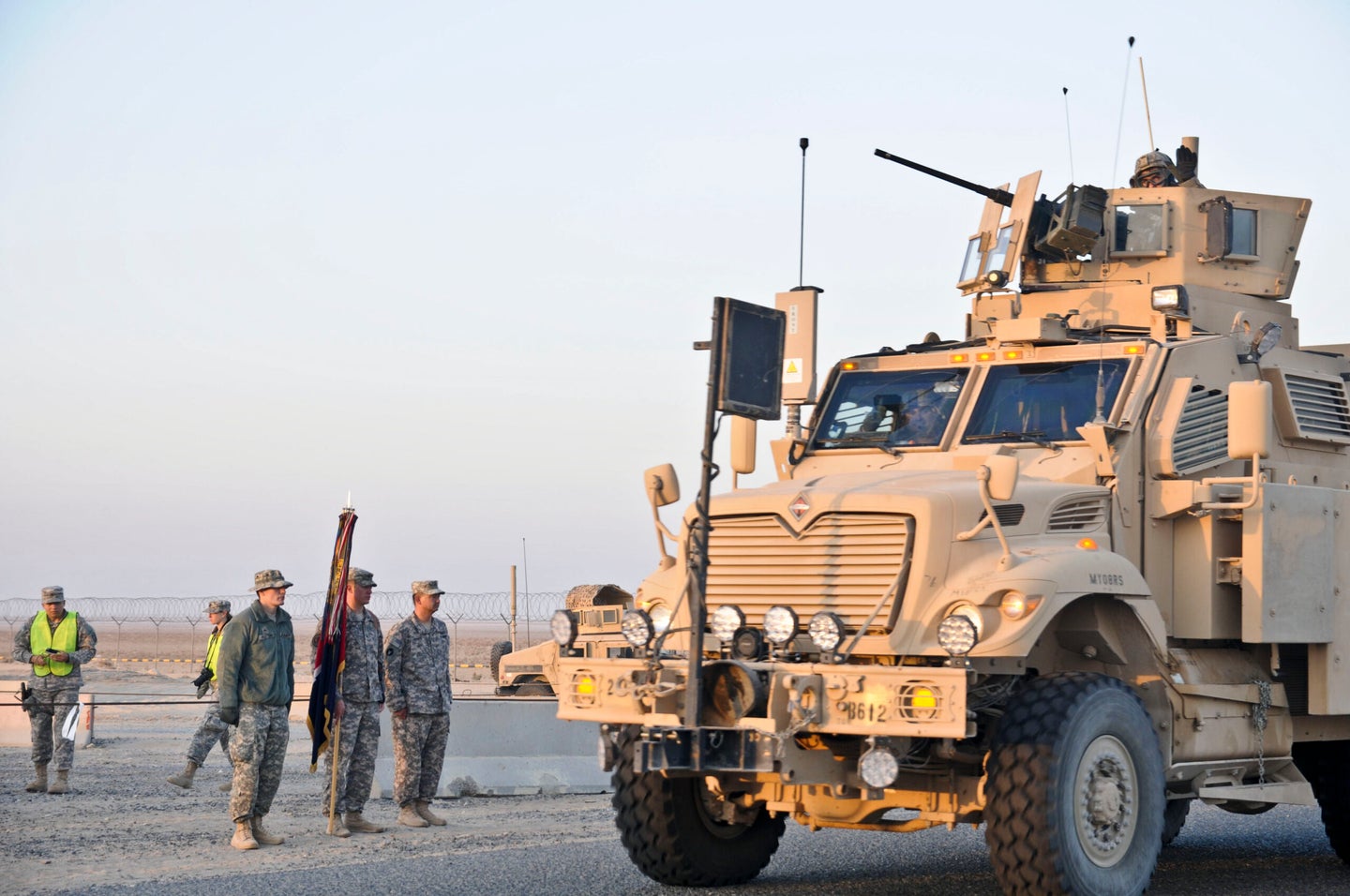A nonsense policy is needlessly putting American troops at risk in Iraq and Syria
The military urgency to confront Iran is based upon circular logic.

Two drone attacks targeted U.S. troops in Iraq on Monday and Tuesday, marking the 2-year anniversary of the U.S. assassination of Iranian General Qassem Soleimani. The United States responded by targeting sites in Syria which had conducted rocket attacks. This comes as the U.S. and Israel posture to attack Iran as a Plan B if nuclear talks fail. These developments could bring about a new tit-for-tat cycle of escalation, the last of which produced over 100 American injuries.
But rather than falling into the same cycle that has endangered the service members it was meant to protect, the United States can simply recognize the futility and unnecessary risks of its presence in Iraq.
The military urgency to confront Iran is based upon circular logic: U.S. troops are in Iraq to deter Iran from attacking U.S. troops that are in Iraq. American lives are needlessly endangered for a goal that can be accomplished by just withdrawing.
Iran is defending what it views as a critical strategic stake. Iraq is a Shi’a-majority nation in a region where Iran is otherwise the sole Shi’a power. As a result, Iran has cultivated extensive ties with Iraqi militias. As far as Iran is concerned, the U.S. is infringing on Iran’s sphere of influence, and not on the peripheries, either. U.S. policymakers need to understand this. Though the U.S. can earnestly say that its presence in Iraq is meant to combat ISIS instead of Iran, this isn’t how Iran views things, particularly given the U.S. implied threats to strike into Iranian territory.
If the positions were reversed, would the United States accept Iranian bases in Mexico under the pretext of fighting drug cartels? Or would we assume that this is a ruse to allow Iran to threaten the U.S. homeland? The U.S. response in this hypothetical would likely mirror — or exceed — Iran’s latest actions.
Syria is likewise a critical factor in Iran’s defense. Syria is the only route by which Iran can supply its proxies and establish deterrence with Israel, since its air force is lacking. U.S. troops, just as in Iraq, are routinely targeted by rocket and drone attacks as a result. And the justifications are identically nonsensical, namely that U.S. troops need to stay in Syria to counter Iran. This omits that the Iranian threat is exacerbated due to the presence of American forces. And just as in Iraq, this mission isn’t an asset but rather a liability to U.S. security.
Iran isn’t poised to dominate the Middle East, either. Though most Iranian missiles are capable of reaching them, American troops in Bahrain and Kuwait are not the targets of pro-Iranian militias. Their goal is limited to ending the U.S. presence in Iraq and Syria. These are the critical nodes of Iran’s defense strategy, and Iran’s resolve to defend them is not going to break.
An improbable ISIS resurgence is a poor reason to stay, too. The U.S. presence is suited to combatting a conventional threat, which ISIS can no longer conduct. Even if it did, there are hundreds of thousands of militia fighters mobilized to fight ISIS, which wasn’t the case when Mosul fell in 2014. Russian airpower and a stronger Syrian government also serve as an obstacle to such an outcome.
Given that staying in Iraq and Syria means risking war with Iran, the U.S. should instead leave Iraq altogether. The reasons to stay are strategically dubious. The reasons for leaving are myriad. Withdrawal would lend legitimacy to nationalist elements in Iraq and cleave Iran’s base of support. The U.S. could engage in nuclear negotiations without inflaming Iran’s threat perception. And most importantly, the single biggest flashpoint that could bring the U.S. into a disastrous war would be eliminated.
Tehran’s stake in Iraq and Syria outweighs Washington’s. The U.S. can respond to this fact in a way that bogs us down in a new war, or in a way that furthers U.S. interests; that continues spending blood to satiate Washington’s pride, or that recognizes the U.S. doesn’t have to fight every possible fight. The latter course doesn’t just prevent a war, it means the U.S. can reorient its foreign policy away from the failed hegemony of the last decade and toward a diplomatic and commercial role in the region. The U.S. can get far more by doing far less.
+++
Geoff LaMear is a Fellow at Defense Priorities.
Read more on Task & Purpose
- The Pentagon’s 2021 report card: Cs, a couple Fs, and an incomplete
- The Army showed the Navy how not to mismanage the contaminated water crisis in Hawaii
- We salute the Marine who kicked in a windshield barefoot to save a man after a car crash
- The legend of ‘wall-to-wall counseling,’ the infamous military regulation that never existed
- Tell us your good, bad, and horribly painful stories about military dental procedures
Want to write for Task & Purpose? Click here. Or check out the latest stories on our homepage.